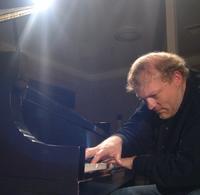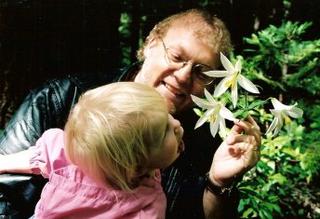Sheet Music Notes: Be Thou My Vision
"Be Thou My Vision" is a well-known church hymn and one of my favorites. The lyrics are a wonderful expression of devotion to the service of God. I love the words to this Hymn...
Be thou my vision, O Lord of my heart
Naught be all else to me save that thou art
Thou my best thought by day or by night
Waking or sleeping thy presence my light.
Be thou my wisdom, thou my true word
I ever with thee, thou with me, Lord
Thou my great Father, I thy true Son
Thou in me dwelling, and I with thee one.
Riches I heed not, nor man's empty praise
Thou mine inheritance, now and always
Thou and thou only, first in my heart
High King of heavem, my treasure thou art.
High King of heaven, after victory won
May I reach heaven's joys, O bright heaven's sun
Heart of my own heart, whatever befall
Still be my vision, O ruler of all.
The melody itself actually comes from an old Irish tune. Scholars debate the date of origin, but generally put it at about the 8th century.
In terms of playing the music, simply approach it with a tone of reverence. Imagine yourself in a very old cathedral, sitting down at a beautiful grand piano. As you play the first few notes, just let them ring out into space. Remember, this is a hymn that was, at one time, primarily sung acapella. So as you play the melody, imagine that melody as a voice, declaring its love and devotion to God.
David
Be thou my vision, O Lord of my heart
Naught be all else to me save that thou art
Thou my best thought by day or by night
Waking or sleeping thy presence my light.
Be thou my wisdom, thou my true word
I ever with thee, thou with me, Lord
Thou my great Father, I thy true Son
Thou in me dwelling, and I with thee one.
Riches I heed not, nor man's empty praise
Thou mine inheritance, now and always
Thou and thou only, first in my heart
High King of heavem, my treasure thou art.
High King of heaven, after victory won
May I reach heaven's joys, O bright heaven's sun
Heart of my own heart, whatever befall
Still be my vision, O ruler of all.
The melody itself actually comes from an old Irish tune. Scholars debate the date of origin, but generally put it at about the 8th century.
In terms of playing the music, simply approach it with a tone of reverence. Imagine yourself in a very old cathedral, sitting down at a beautiful grand piano. As you play the first few notes, just let them ring out into space. Remember, this is a hymn that was, at one time, primarily sung acapella. So as you play the melody, imagine that melody as a voice, declaring its love and devotion to God.
David






